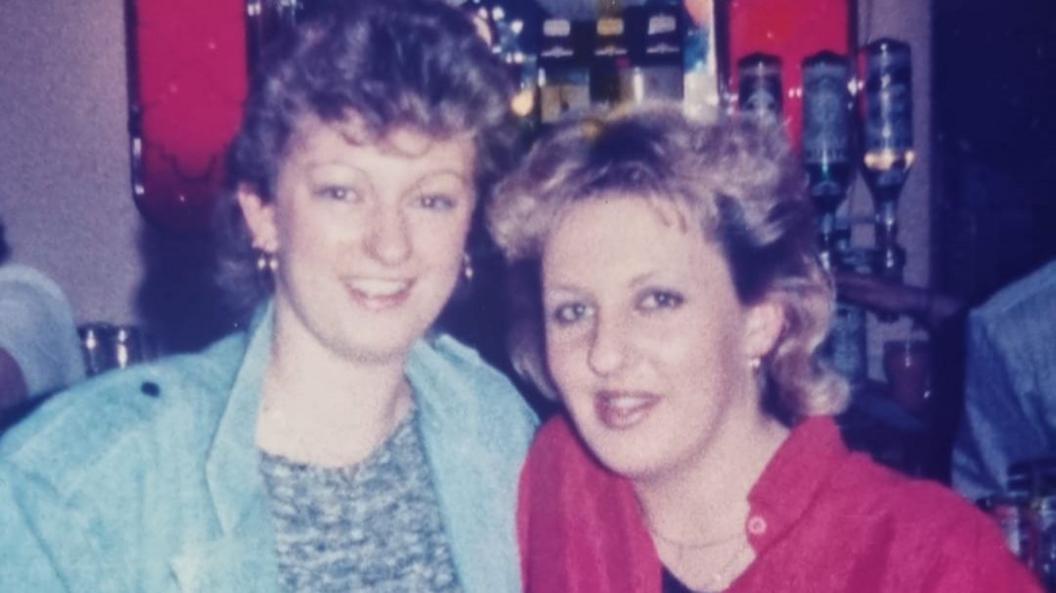Play sees 'left out' villages relive miners' strike
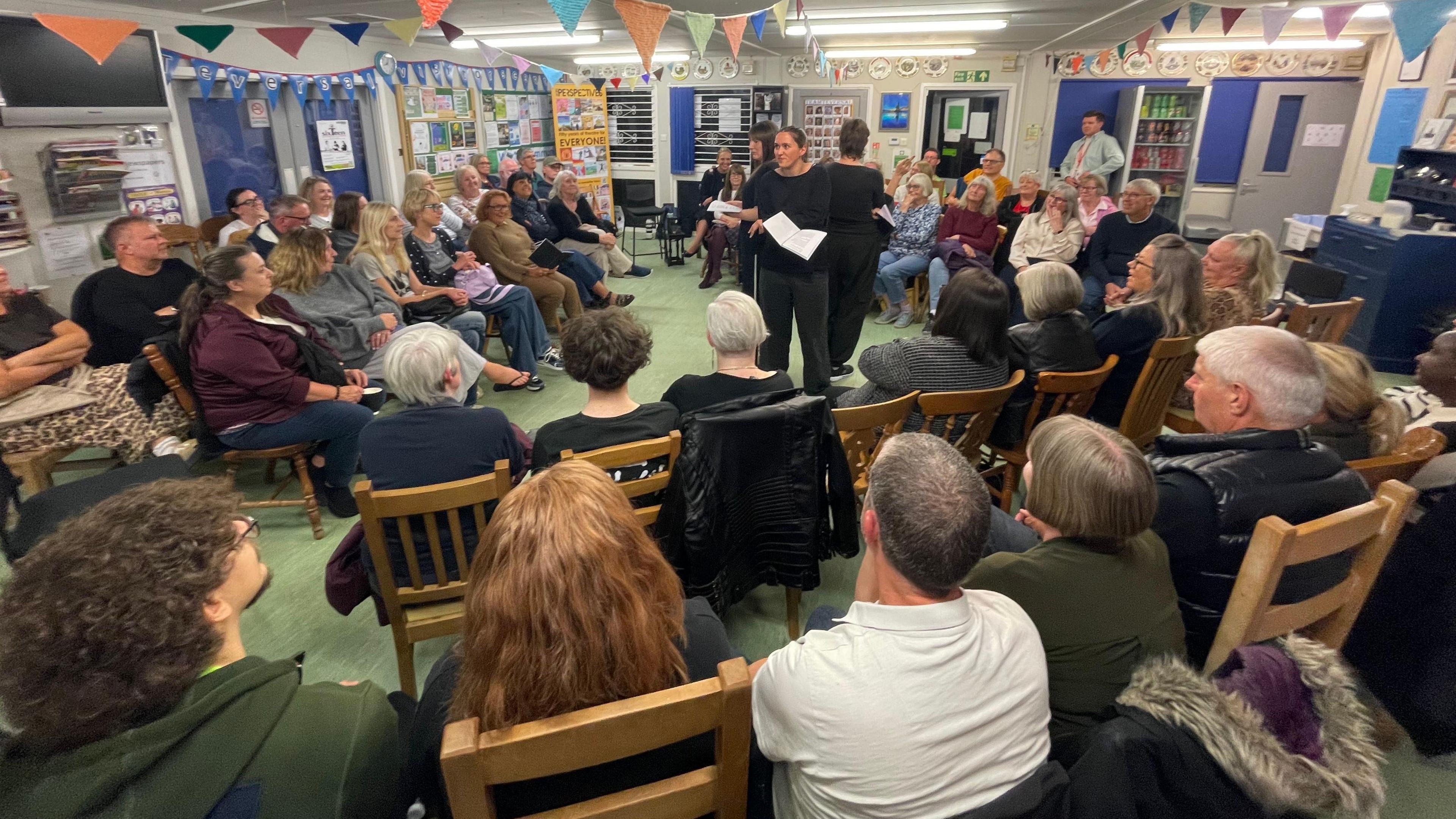
The audience of Sixteen sit in a triangle around the performers
- Published
A new play about the 1984 miners' strike is encouraging former pit communities to deal with the lasting impact of decades of industrial decline.
Sixteen is Lisa McKenzie's personal story of how her childhood in Nottinghamshire was turned upside down.
Audiences at several venues around Sutton-in-Ashfield have been invited to share their own emotional experiences and suggest solutions.
Lisa told the BBC the play was a warning shot about how some communities are "not left behind, but purposefully left out".
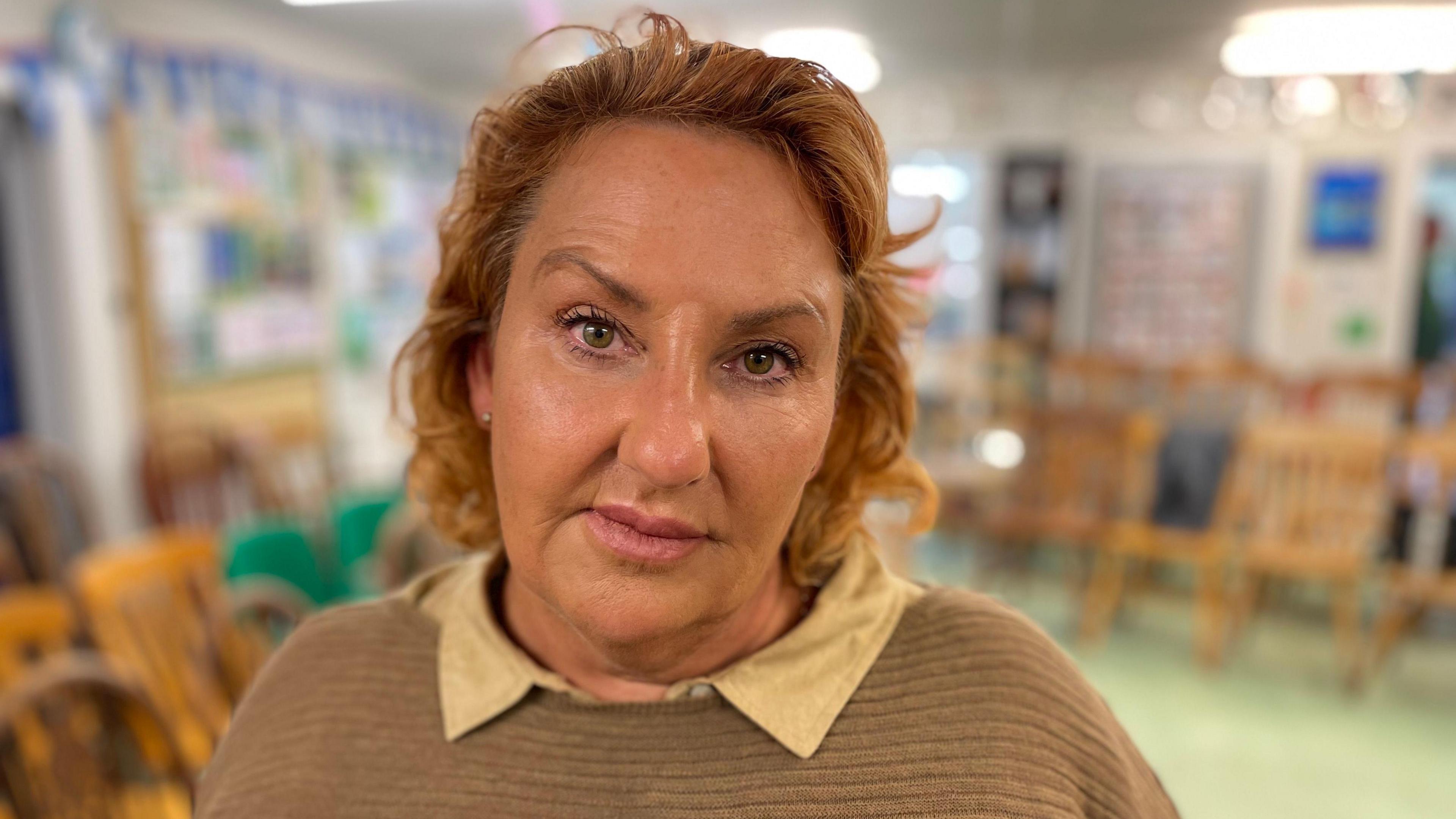
Lisa McKenzie is now a sociologist and co-wrote Sixteen with Jayne Williams
Sixteen paints a warm, humorous, picture of traditional working-class childhoods on the Carsic Estate.
But that laughter soon turns to anger as the strike strains friendships and family relationships.
The play begins on Lisa's 16th birthday, as she goes downstairs to find her dad in the kitchen with several other miners who have refused to cross a picket line.
It is the story of the long-term consequences through the eyes of three teenagers - Lisa and her two best friends.

The play looks at the long-term impact of de-industrialisation on the Carsic Estate
Abigail Pidgeon, who plays 16-year old Lisa, said the drama had opened her eyes to the "devastation" the strike caused.
"That's the magic of it. It's bringing people together to listen to a story. They'll go home. They'll talk about it," she said.
"It will hopefully bring more people together, and I think now more than ever that's what we need."
The play is performed at the centre of a triangle, to encourage the audience to participate.
This is their story too and its ripple effects hit hard after the coal mines closed.
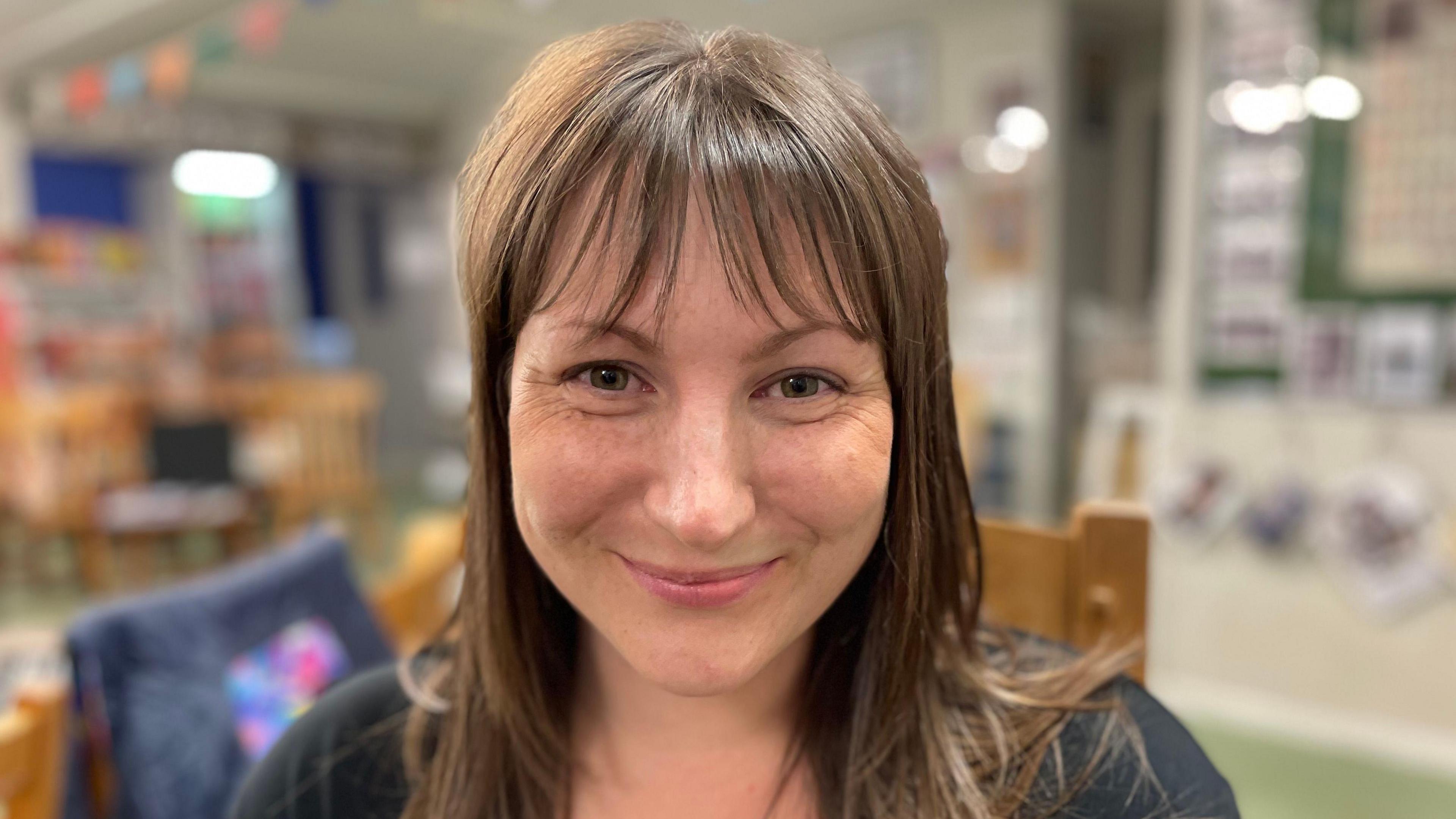
Abigail Pidgeon plays 16-year old Lisa in Sixteen
Abigail invites the audience to join a chorus of "if you're wearing foreign knickers ger'em off", as 16-year-old Lisa joins a protest against cheap overseas imports.
That protest was a vain attempt to save the Pretty Polly factory in Sutton, where Lisa says her first job was making underwear for Marks and Spencer.
"One of the lines in the play is 'they won't take everything from us, because everybody needs knickers'," she said.
"But we start to realise throughout the play that it doesn't have to be us that make them."
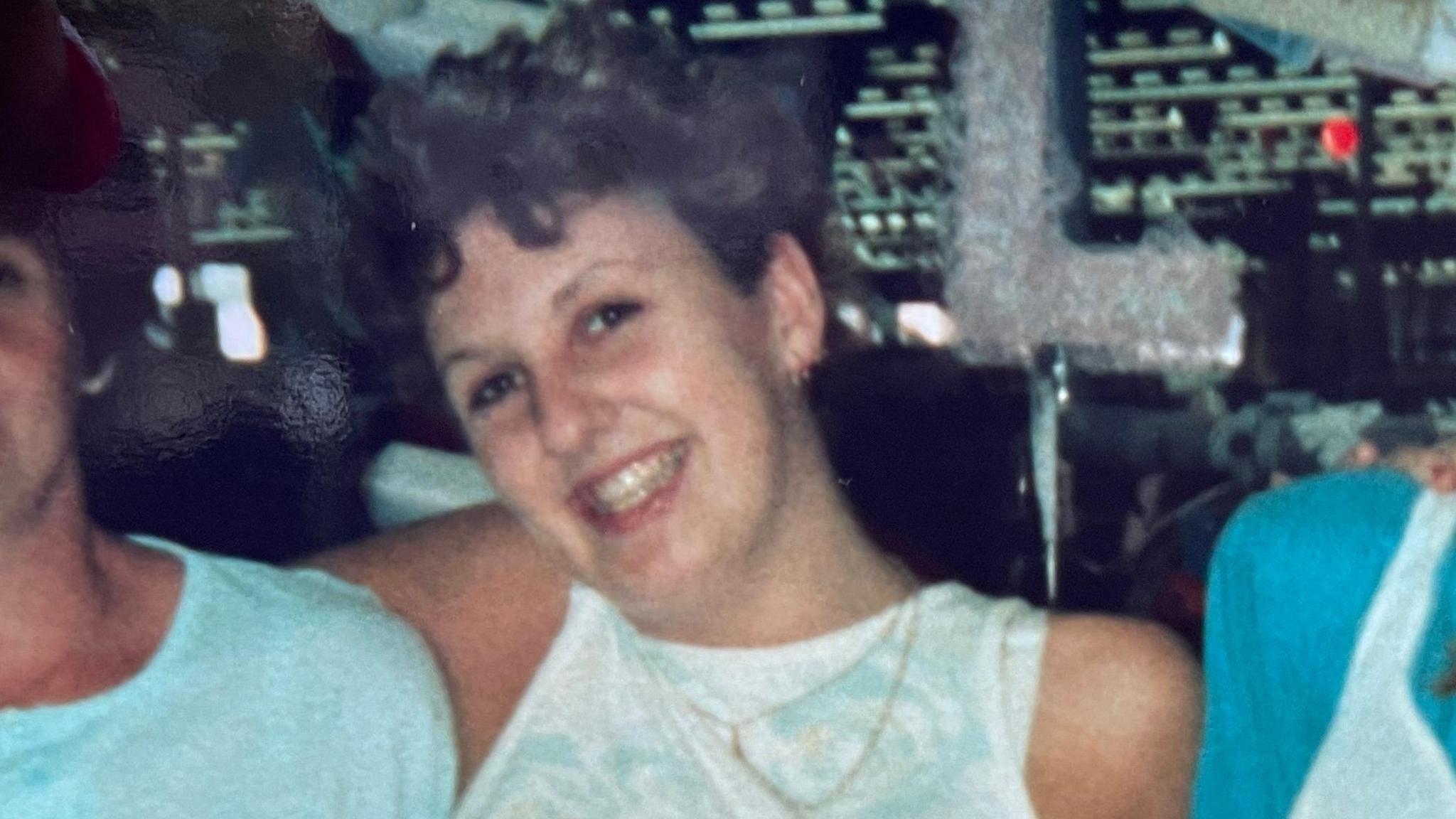
Lisa began working at a local textile factory when she was 16
After each performance, members of the audience are asked to share own their experiences and suggestions.
That rekindled emotional memories for several former members of Notts Women Against Pit Closures who watched the play in Teversal.
Some women wiped away tears as 78-year old Ann Cassettari read a poem about her own experience of a strikers' rally in London.
The poem read: "I was there when the children were screaming, caught up in a stampede of hate. Women were frightened and hysterically weeping. The men had their ground too late.
"I was there when thy brought out the horses. What a magnificent sight. But as they move menacingly towards us, my man cried 'this isn't right'.
"I was there when they left a path of destruction. Broken heads, yeah there were a few...
"Seventy men that day were arrested and six were hospitalised. And all because of our temper, their anger, and Maggie's pride".
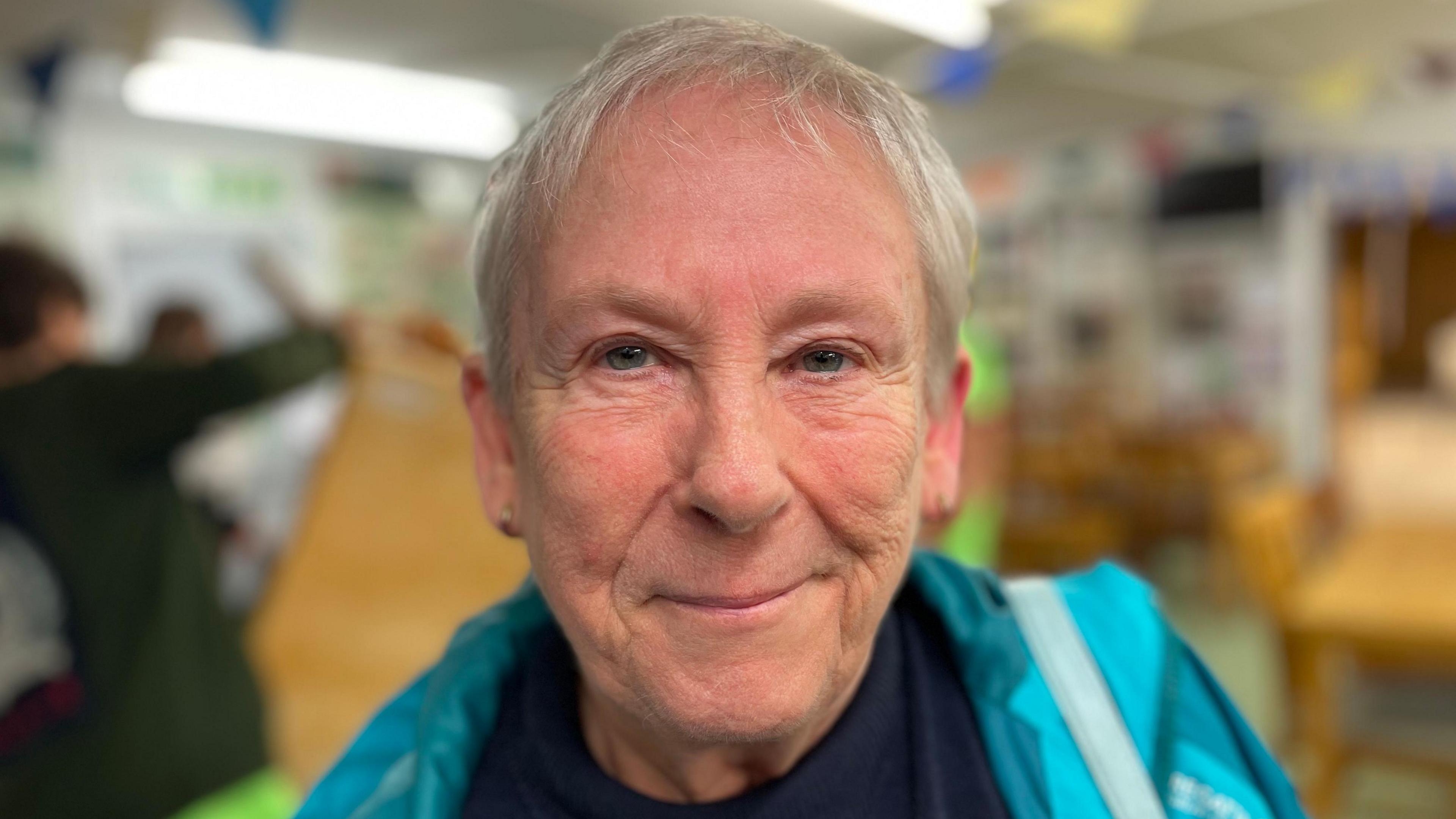
Ann Cassettari was a member of Notts Women Against Pit Closures
Ann tells the audience her family's house was stoned and their car was keyed, while another audience member explains how striking families evaded police surveillance.
"Our phones were being tapped, so we'd say we're going to have a Tupperware party," she said.
Ann adds that the country owes more loyalty to its former mining communities.
She wants young people to be offered a chance to try different apprenticeships so they have better job opportunities.
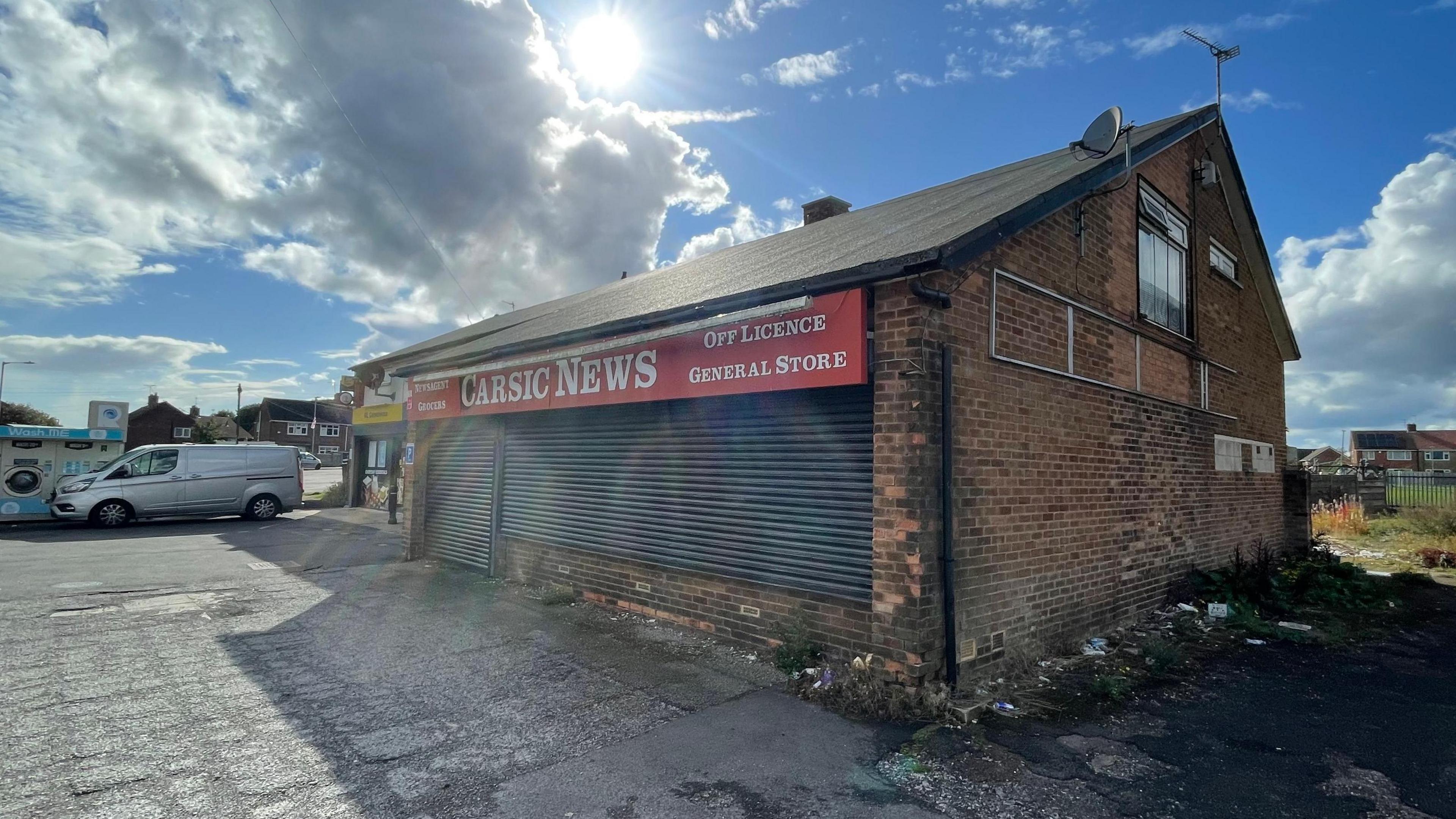
Some shops on the Carsic Estate have shut down
And back on the Carsic Estate, where Sixteen is set, shuttered shops and boarded-up buildings suggest a community that is still struggling to recover.
Some residents give us blunt, crude, responses when we ask about the estate.
One woman tells us the lack of opportunities here has fuelled a trade in "smack" [heroin] and Donna says the lack of jobs for young people is "scary".
"My mum said to me, before I had my youngest 'you shouldn't have no more, because there's nothing for them', and there isn't."
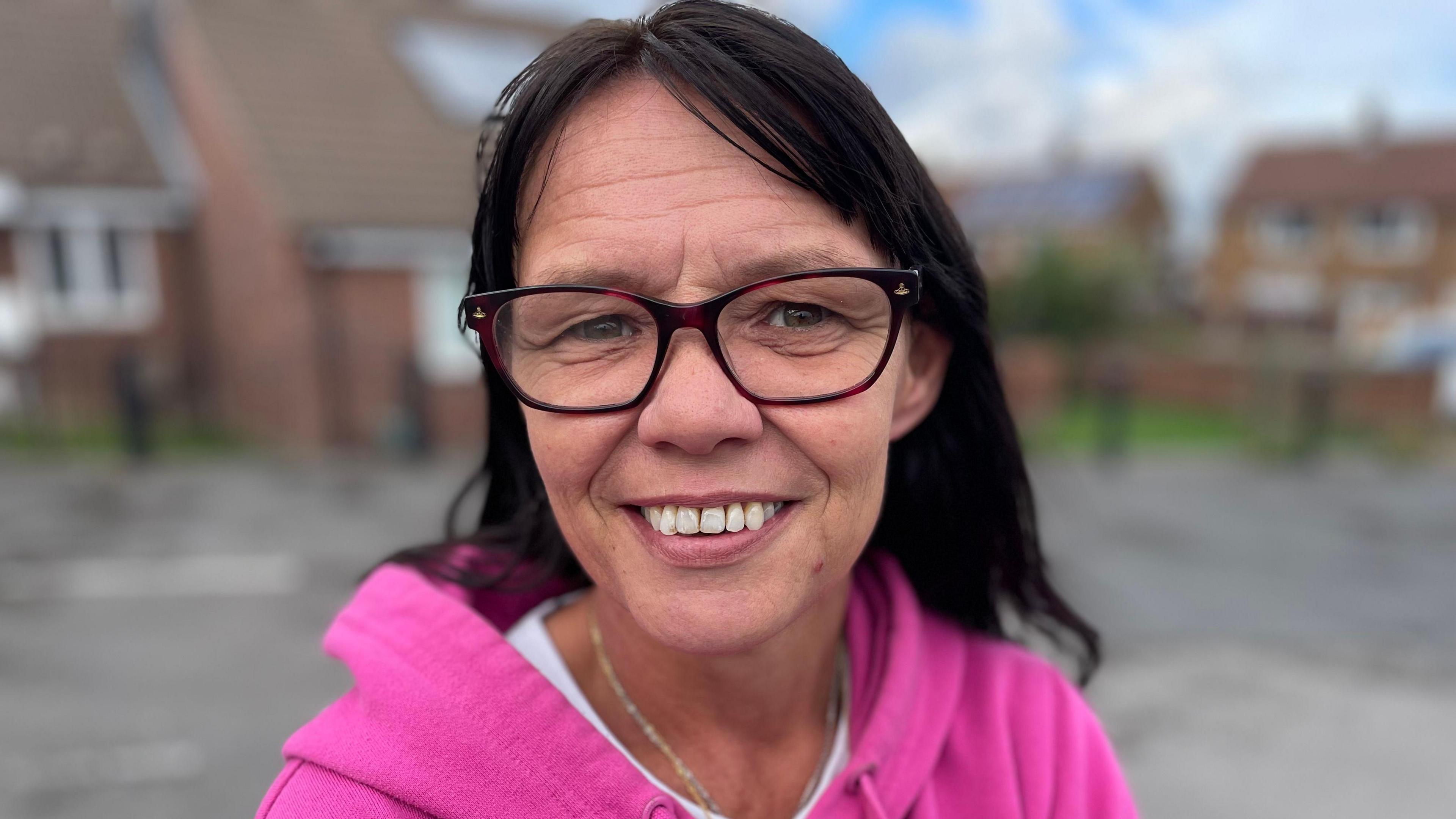
Donna has lived on the Carsic Estate for 20 years
Lisa says working class 16-year-olds are still having "a really tough time" today, as she did in 1984.
"The people in places like Sutton-in-Ashfield work hard. They're happy to graft. They need good work that pays a wage that people can live in dignity," she said.
"This is a good opportunity to ask local audiences 'what can we do about this?'.
"Can we stop people shopping at very cheap places and having throw-away fashion? We perhaps can't do that.
"But can we have people that are skilled again? Yeah we can, because this area was filled with people that were skilled workers."
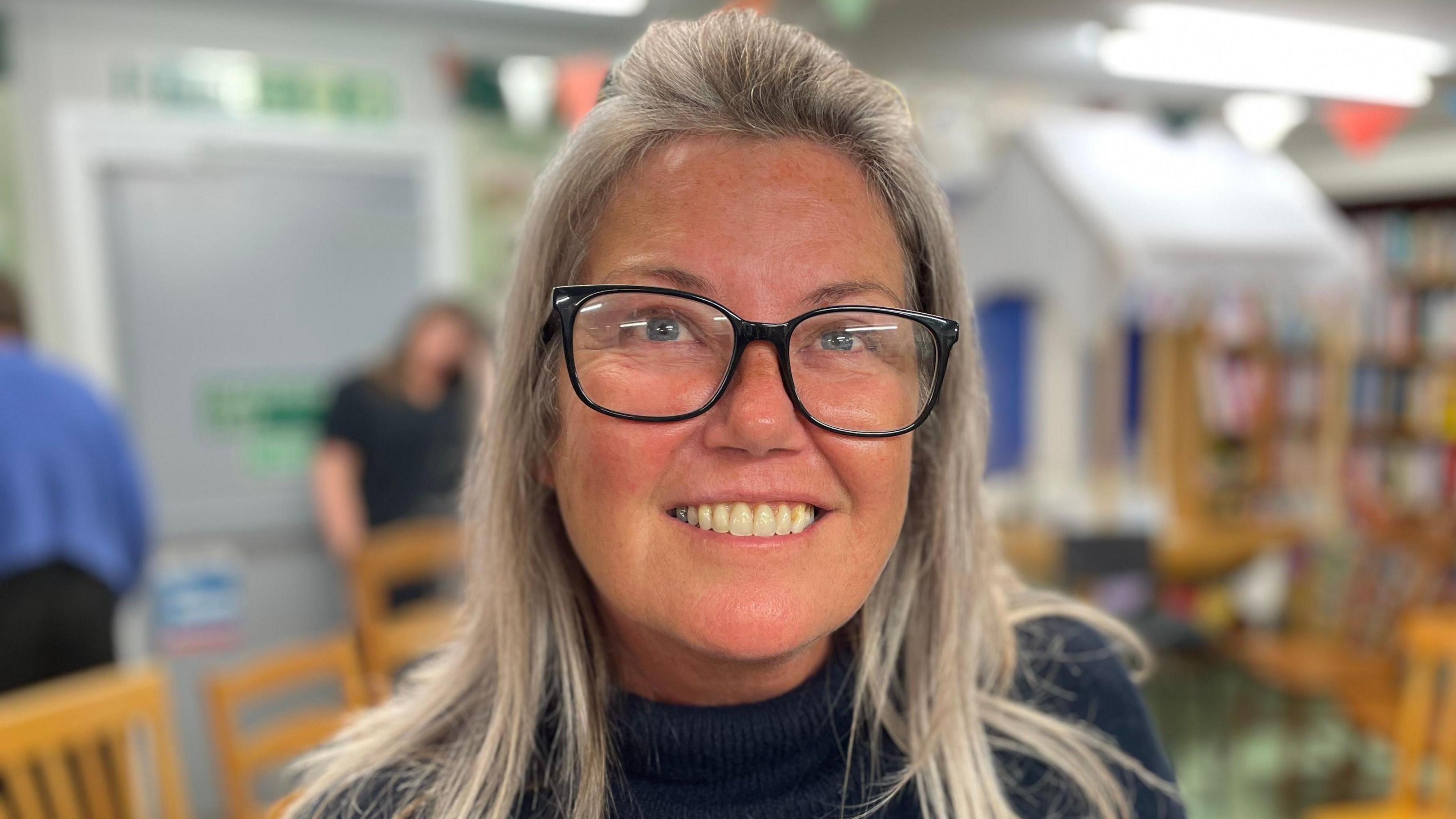
Karen Page is one of Lisa's childhood friends
And Karen Page, one of Lisa's childhood friends, believes their shared adversity made them stronger.
"We're all friends and we all stick up for one another," she said.
"Whatever we're going through we will always make a good thing out of something bad.
"We'll stick together and get each other through it".
Get in touch
Tell us which stories we should cover in Nottingham
Follow BBC Nottingham on Facebook, external, on X, external, or on Instagram, external. Send your story ideas to eastmidsnews@bbc.co.uk, external or via WhatsApp, external on 0808 100 2210.
Related topics
- Published25 August
